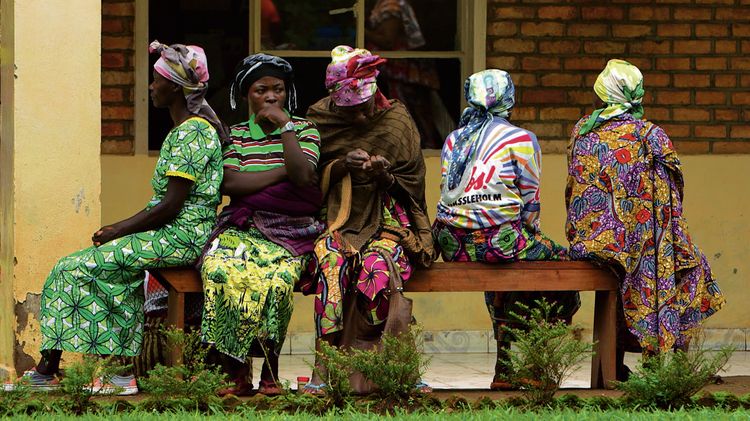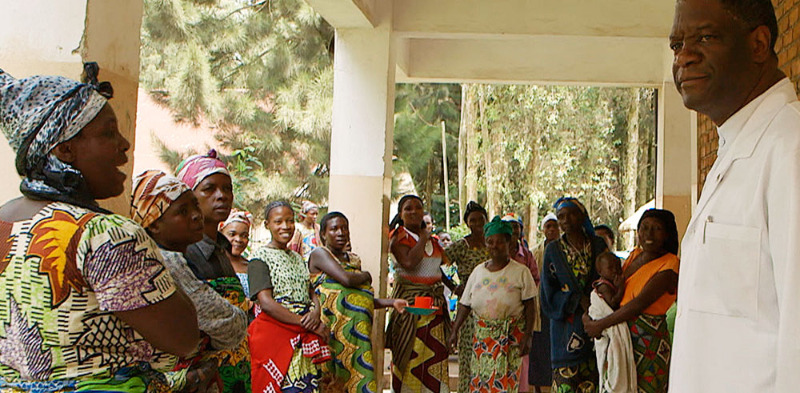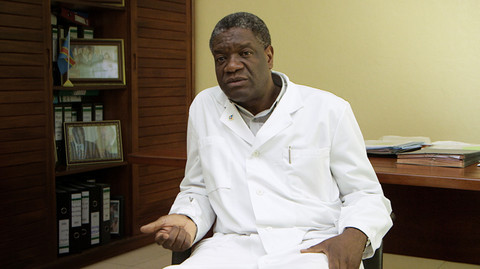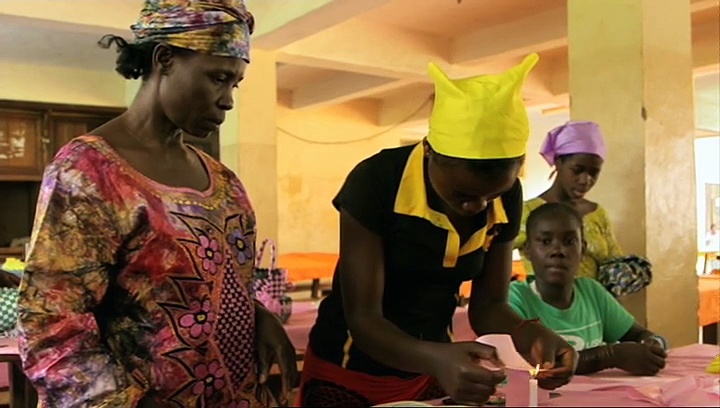You only have until the end of November 2014 to see [at this link] the excellent documentary by Angèle Diabang about Dr. Denis Mukwege and his hospital for women victims of sexual violence in eastern Congo. Immature child soldiers are pushed to rape women who could be their mothers. Rape, a weapon of war for the rebels of Kivu, destroys the social fabric, as everyone loses their identity: the women, as well as their husbands and children.
The documentary by the young Senegalese director is programmed in the early evening on France 5, a respectable French broadcast channel. It is a rather rare topic to be reported. But it is especially important as the film is of exceptional acumen about a difficult subject. Angèle Diabang could have simply presented a flattering portrait of the famous surgeon-gynecologist who « repaired » women; triumphantly returning to the country he was forced to leave in 2012 after three assassination attempts. On the contrary, in line with the humility of his character, what Denis Mukwege says facing the camera is but the starting point for other voices; those of the psychologists and other caregivers, those of the women who have been raped; also at the centre of the image is the force of their uncovered faces, they who yearn to testify before the world, of the horror that they have lived, in the wild hope that it would serve to defend against future acts. The camera’s framing reflects their beauty and dignity; an appropriate distance is always respected.
These men, says Mukwege, « transform women’s bellies into a battlefield. » These poignant stories show that his words, unfortunately, are so true. Because it is not only the rape, but also the rejection that the women experience by their families. « My tears flow by themselves »: We learn that women come back, raped again, what do they say to the child born of rape? How do you love this child?
Attentive to the surroundings, the details, the emotions, and especially to the vitality of the women and how they enliven the space, Angèle accords them first place, putting them in the spotlight, which is the objective of the hospital: to give them hope, teach them to read and write, help them rebuild their lives with a trade (in the Dorcas centres).
Men repair what the other men have done: the surgeons come together in an attempt to disrupt the damaging effects resulting from the « culpable complicity » of the Western powers, even though « without justice there is no peace. » By his action as by his outspokenness, Dr. Mukwege troubles both the Rebels as well as the Rulers, but he takes the risk of acting because « the women are the ones who will bring about change », by their resilience and vitality, and « we must fight alongside them. »
Partnership with [African Women in Cinema Blog]///Article N° : 12568













